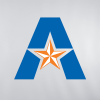- Residence Halls and Student Centers managed learning commons spaces?
- The Office of Research managed campus-wide electronic database subscriptions and on-demand access to digital scholarly materials?
- Facilities managed the off-campus warehouses where books and other print artifacts are stored?
- The majority of scholarly information becomes open? Libraries would no longer need to acquire and control access to materials.
- All students are given eBook readers and an annual allotment to purchase the books, articles, and other media necessary for their academic pursuits and cultural interests? Collections become personalized, on-demand, instantaneous, and lifelong learning resources.
- Local museums oversaw special collections and preservation?
- Graduate assistants, teaching fellows, post-docs, and undergraduate peer leaders managed database training, research assistance, and information literacy instruction?
- The Office of Information Technology managed computer labs, proxy access, and lending technology and gadgets?
These are some of the questions raised in Brian Mathews’s article “Think Like a Startup” (2012).
If we, the library professionals, don’t ask ourselves these questions, someone will. That would likely come from a perspective of cost saving. If other cost centers can be cut, why not the libraries?! Libraries must evolve! “Facing the future, we don’t just need change, we need break through, paradigm-shifting, transformative, disruptive ideas”, Mathews has argued. University of Texas at Arlington Libraries fully agrees. In fact, the libraries underwent reorganization in 2013 to lay down a foundation to support a culture of risk-taking, innovation, and transformation. In a rapid pace, a score of initiatives have been implemented after the reorganization. For example:
- Collection management strategy is shifted from a just-in-case model to a just-in-time model.
- Under-used and used print collections are strategically transferred or withdrawn to free up premium space for faculty and student programming.
- Campus partners are invited to the libraries to form an academic plaza for in-time academic support.
- A FabLab is established to democratize access to equipment and technology not only for campus users but local communities.
- A Scholarly Communication division is formed to promote Open Access. Partner with faculty in the research cycle for knowledge creation and dissemination.
These efforts have catapulted the libraries into a new stage where paradigm-shifting works are happening every day.
This year we would like to plan a year of programming to continue the conversation on library (R)evolution. We sincerely hope you can join us in this quest.


Add new comment